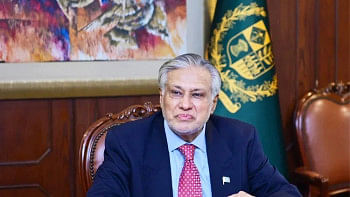Gas price hike to cripple local industry, businesses warn

The hike in gas prices proposed by distributing companies could severely impact the production of local industries and increase import dependence, businesses cautioned yesterday.
They voiced their concerns at a seminar on policy consideration in energy affordability and its impact on industrial competitiveness, organised by the Economic Reporters' Forum (ERF) and Policy Exchange Bangladesh at the InterContinental Dhaka yesterday.
"The government's plan to double gas prices would significantly raise production costs, making local industries uncompetitive and discouraging investment," said M Masrur Reaz, chairman and CEO of Policy Exchange Bangladesh.
Reaz said important sectors like steel, cement, and ceramics would become more reliant on imports, intensifying the pressure on foreign reserves. He also warned that rising gas prices could force many industries to shut down, leading to a rise in non-performing loans. Higher energy costs would also deter foreign direct investment (FDI) and local business expansion, he added.
Reaz stressed the need for rational energy pricing, investment in renewables, and strategies to stabilise the power grid.
Anwar ul Alam Chowdhury, president of the Bangladesh Chamber of Industries, criticised the proposal to raise gas prices by 150 percent for new industries and 50 percent for expansion projects.
"Bangladesh's industries were built on affordable gas, but rising energy costs, high bank interest rates, and excessive taxation are making survival difficult," he said, urging the government to prioritise existing industries before promoting new ones.
Shawkat Aziz Russell, president of the Bangladesh Textile Mills Association, echoed those concerns, accusing past administrations of mismanaging gas purchases and contributing to industrial distress.
Jalal Ahmed, chairman of the Bangladesh Energy Regulatory Commission, acknowledged the deepening energy crisis, attributing it to years of delayed price adjustments. He said energy prices should have been adjusted gradually over time, adding that the sudden hike poses a significant financial strain on industries.
Tanim Hussain Shawon, a lawyer, argued that the proposed hike violated Section 6 of the Gas Law.
He said that while the government has categorised gas connections, it has not specified separate pricing mechanisms for new and existing investors.
Doulot Akter Mala, president of ERF, presided over the session.

 For all latest news, follow The Daily Star's Google News channel.
For all latest news, follow The Daily Star's Google News channel. 



Comments